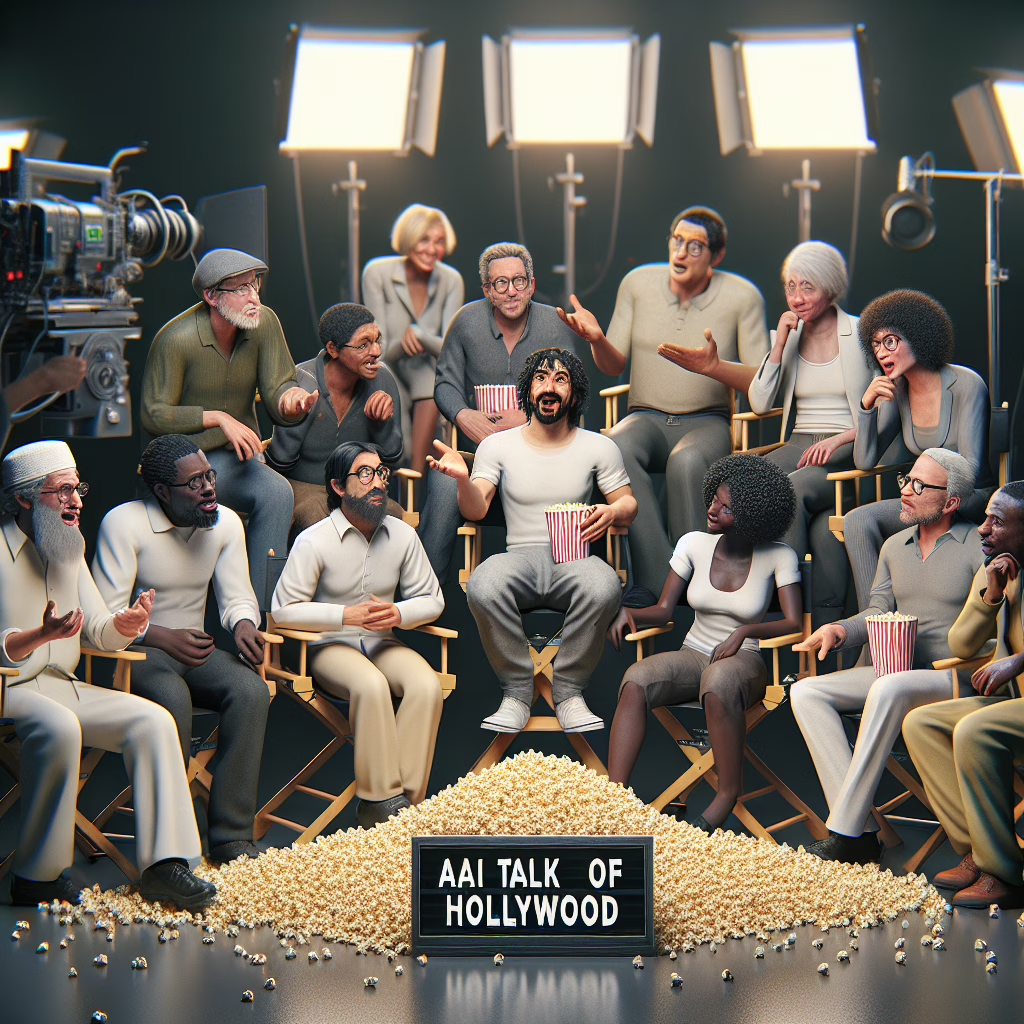In 2025, Hollywood studios find themselves in a bit of a pickle, grappling with the reality that AI movie trailers aren’t quite the gold mines they once imagined. While the allure of AI-generated content promises a shortcut to blockbuster success, the truth is these trailers are more like fast food: they look good on the surface but often leave you feeling unsatisfied.
The Rise and Fall of AI Movie Trailers
Just a few years ago, it seemed like a dream come true. Imagine a world where studios could pump out AI movie trailers at lightning speed, saving time and money while still drawing audiences in like moths to a flame. However, as it turns out, this shiny new technology has its quirks. Audiences have started to notice that something feels off about those perfectly polished previews. Perhaps they miss the human touch, or maybe they just want to know who really made that captivating two-minute clip.
As it happens, the magic of storytelling doesn’t translate well into algorithms. Who knew that creativity might require a sprinkle of human emotion? Critics argue that AI lacks the soul needed to create compelling narratives, leaving studios scratching their heads and wondering why their investments in AI movie trailers aren’t paying off.
What Went Wrong?
The problem lies in the fact that while AI can generate stunning visuals and catchy taglines, it struggles with context and emotional depth. An AI can whip up an action-packed montage faster than you can say “box office flop,” but it might not convey the heart-wrenching drama of a character’s arc or the subtle humor that makes us chuckle. Here’s what went wrong with the AI trailer hype:
- Lack of Emotion: Audiences crave connection. AI-generated trailers often miss the emotional nuances that resonate with viewers.
- Contextual Understanding: AI struggles with storytelling elements that require a deep understanding of human experiences, making its outputs feel mechanical.
- Regulatory Challenges: Platforms like YouTube have cracked down on monetization strategies. Studios once salivated at the prospect of earning big bucks from viral AI movie trailers, but now they face strict regulations and copyright issues. In essence, it’s like trying to sell lemonade in winter—no one’s buying!
The Cost of Creativity
With all this in mind, studios must reevaluate their strategies. Are they going to keep pouring money into AI tools that promise quick results? Or will they return to good old-fashioned storytelling? The answer is probably a mix of both—after all, who can resist the siren call of technology?
Some studios are now investing in hybrid approaches where human creativity meets machine efficiency. Picture this: a talented team brainstorming ideas while an AI helps visualize them in real-time. It’s like having your cake and eating it too—just don’t forget to add frosting!
A New Era for Movie Marketing
This shift opens exciting doors for innovation. Studios can utilize AI movie trailers as tools for brainstorming rather than as end products. By harnessing AI’s potential for rapid prototyping, filmmakers can explore multiple concepts before committing to a final cut. This approach could lead to more engaging content that resonates with audiences.
Plus, let’s not forget about audience interaction! Imagine letting fans vote on different trailer cuts generated by AI—talk about giving them a stake in the process! Not only does this build anticipation for upcoming releases, but it also creates a sense of community around films.
The Future Looks Bright (and Slightly Silly)
As we look toward the future of film marketing, one thing is clear: Hollywood studios need to adapt or risk fading into obscurity like last season’s fashion trends. While AI movie trailers may not be the ultimate solution they once believed them to be, they certainly serve as a valuable tool when used wisely.
So here’s to finding balance—a dash of human creativity mixed with a sprinkle of technological wizardry! Who knows? The next big blockbuster might just come from a collaborative effort between filmmakers and their digital assistants.
If you’ve got thoughts on this quirky intersection between technology and film, we’d love to hear them! Drop your comments below!
A special thanks to TechRadar for their original insights on this topic! You can read more about it here.

